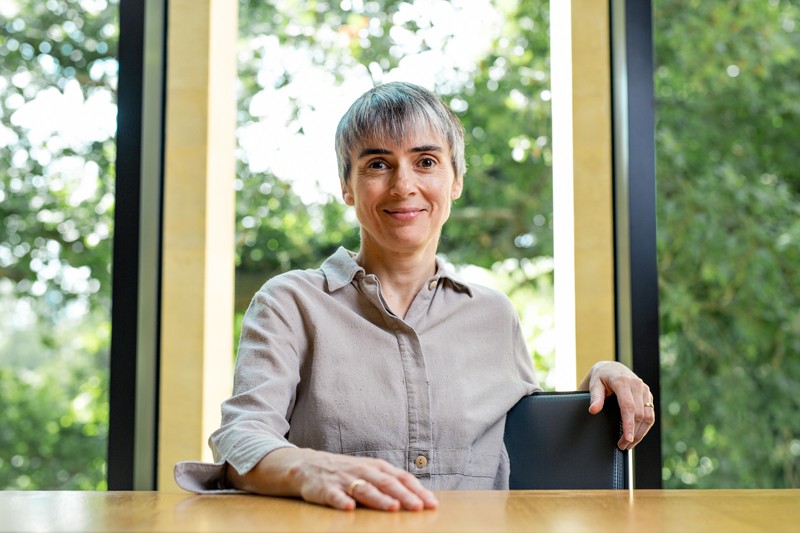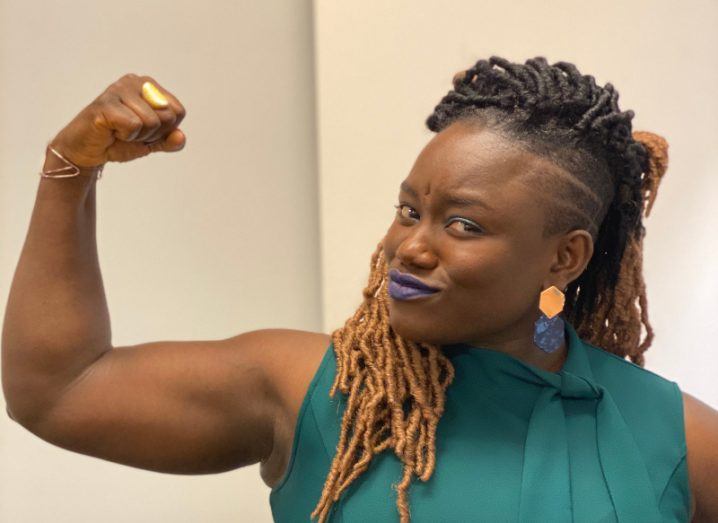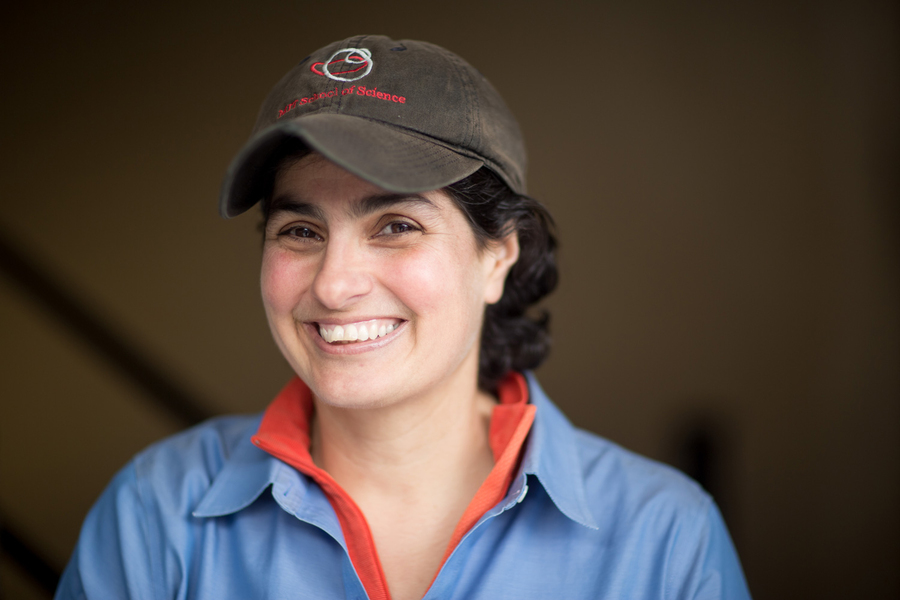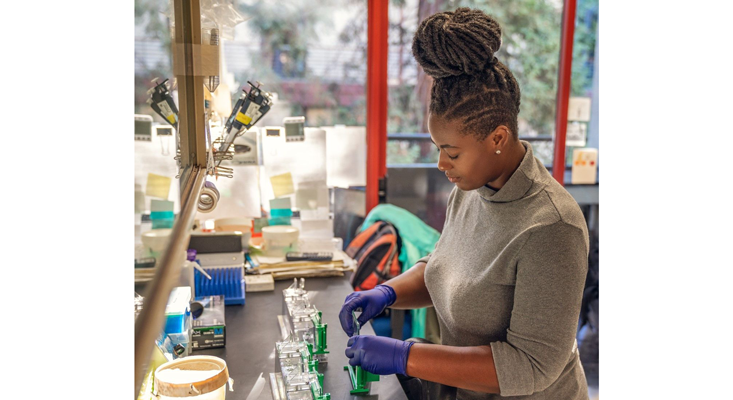(the new!) RFS Briefings - September 1, 2020Dear Colleagues, I am pleased to include another issue of RFS Briefings with some timely and encouraging updates on women in science. See below for more news about women in science Please continue to share important news and opportunities with us so that we may share it with you, and others who are committed to supporting the careers of exceptional women in science. With regards in these trying times,
NewsOn the 100th anniversary of the 19th amendment to the US constitution giving women the right to vote, Monumental Women unveiled the first statue of real women in Central Park’s 167-year history. The monument honors Women’s Rights Pioneers Sojourner Truth, Susan B. Anthony, and Elizabeth Cady Stanton. Read more on Monumental Women. Quick and affordable saliva-based COVID-19 test developed by Yale scientists receives FDA emergency use authorization. Chantal Vogels, a Yale postdoctoral fellow who led the laboratory development and validation, said that “This is a huge step forward to make testing more accessible. This started off as an idea in our lab soon after we found saliva to be a promising sample type of the detection of SARS-CoV-2, and now it has the potential to be used on a large scale to help protect public health.” Read more on Yale News. Scientists see signs of lasting immunity to Covid-19, even after mild infections. Marion Pepper, an immunologist at the University of Washington, is one of the scientists leading new research that indicates that human immune system cells are storing information about the SARS-CoV-2 coronavirus so they can fight it off again. Read more on the New York Times. How bacteria-eating bacteria could help win the war against germs: An article in the New York Times highlighted the work of Laura Williams, Julia Johnke, Nancy Connell, Geraldine Laloux, Henry N. Williams, and other scientists. They are studying predatory bacteria to potentially use them as “living antibiotics”. Meet Women in STEMLynn McGregor is using chemical biology to rewrite the rules of small molecules. At Novartis’s chemical biology group, she is developing technologies to unlock the secrets of the proteome for drug discovery. One of her projects has been to improve the design of protein degraders—small-molecule drugs that break down, rather than simply block the activity of proteins. Read more on C&EN. Nergis Mavalvala, the Curtis and Kathleen Marble Professor of Astrophysics, has been named the new dean of MIT’s School of Science. She is known for her pioneering work in gravitational-wave detection and will be the first woman to serve as dean in the School of Science. Her identity as an openly queer immigrant woman scientist of color has also brought her public attention. According to the MIT, as she takes on her new role, Mavalvala plans to continue to engage a wide audience with her passion for science and discovery.
‘Make research fun again’: UK’s powerful funding chief is on a mission to change scientific culture. In June, the plant scientist Ottoline Leyser became the second director of Britain’s behemoth research-funding agency, UK Research and Innovation (UKRI). She spoke to Nature News about her ambitions to change how research in the United Kingdom fundamentally functions.  Ottoline Leyser took over as chief of UKRI in June. Credit: Mike Thornton Ottoline Leyser took over as chief of UKRI in June. Credit: Mike Thornton‘I use my platform to shake the stereotype of what a scientist looks like’. Danielle Twum is a cancer immunologist and IF/THEN ambassador with the American Association for the Advancement of Science. “As an ambassador, my favourite part is having teachers and parents tell me that I have inspired their students and children respectively to pursue a career in STEM,” she says. Read more on Silicon Republic.
 Danielle Twum, cancer immunologist. Image: Danielle Twum DiversityA hashtag starts a movement to end systemic racism in science. Julianna LeMieux, science writer at GEN, recently interviewed the organizers of #BlackInGenetics, a Twitter group dedicated to amplifying the voices and work of black-identifying geneticists while building a network to facilitate recruitment. Formed by graduate students, the group is part of a movement working to build an online community to have a conversation and brainstorm how to move forward to combat systemic racism as a scientific community. Read more on GEN. For more upcoming events like #BlackInGenetics, check out Twitter for the hashtags below: Science is everybody's party: 6 ways to support diversity and inclusion in STEM. “Valuing diversity leads to scientific excellence, the progress of science and, most importantly, it is simply the right thing to do. We must value diversity not only in words, but also in actions,” write the researchers. Read more on Nature Chemistry. This real-life planeteer from Zimbabwe is saving the Earth with green chemistry. Emmie Chiyindiko, a chemist exploring how to make industrial processes more efficient, is helping to bring to life a science-themed comic book. Having a science superhero for young black girls is needed because, Chiyindiko says, one of the biggest challenges for her, as a woman in chemistry, is representation. Read more on Forbes. 3-D printed statues in Central Park shine a light on women scientists. Dorothy Tovar and Rae Wynn-Grant are among the women whose images were scanned by 89 cameras and 25 projectors to generate a 3-D image. Their images are intended to inspire girls to pursue STEM careers. In the language of the sponsoring project, #IfThenSheCan: “if she can see it, then she can be it.” Read more on Nautilus.
GlaxoSmithKline is backing an initiative to increase the number of diverse Philadelphia students entering STEM careers. The company will invest $10 million over the next 10 years to support the Philadelphia STEM Equity Collective, to help Black, Latinx and female Philadelphia students overcome obstacles in their pursuit of careers in science, technology, engineering, and mathematics. Read more on PHL Business Journal. Are you trying to inspire others with authentic and relatable images of women in STEM? The IF/THEN Collection is a new digital asset library of women STEM innovators, for educational and other noncommercial use. Read more on Science Writing News Roundup #1 EventsVirtual conference, September 9th, 2020: The impact of the COVID-19 crisis on women in science. During this conference, prominent scientific leaders will explain practical steps, solutions and actions that they are implementing at their research institutions, which could serve as the basis for the "new normal" in academia. Read more on EMBL. Virtual event: Rita Colwell, pioneering microbiologist, former director of the National Science Foundation and President of the Rosalind Franklin Society, will be discussing her new book ‘A Lab of One's Own: One Woman's Personal Journey Through Sexism in Science.’ on September 4, 2020. Read more on the Harvard Book Store. Nobel Laureate Frances Arnold to deliver the Hall Engineering Lecture Sept.15. Her lecture, “Innovation by Evolution: Bringing New Chemistry to Life,” is free and open to the public. It will be live streamed and registration is required. Read more on Vanderbilt University News. AcademiaNicola Patron, Synthetic Biology Group Leader at the Earlham Institute, compiled a list of women who have leadership roles in the areas of engineering biology and synthetic biology. Please help the list to keep growing by sharing the names and contacts of anyone (in any country or organization!) you think should be included. If you want more women in your workforce, here’s how to recruit. Four female researchers describe what they learned about how academic departments and institutions can best communicate that they are welcoming to women, and to those from other marginalized and under-represented groups. Read more on Nature News. Women less likely to critique men’s research in academic journals. According to researchers, the pattern is consistent across the physical sciences, the biological sciences, as well as the social sciences. Because of that, women could be excluded from or marginalized in important scholarly debates and networks. Read more on the Conversation. Women's journal submission rates continue to fall. As a department head at the University of Georgia, Amanda Murdie says she’s “hopeful that universities can be more creative and flexible when it comes to tenure clocks and the effects of the pandemic. Any changes need to consider the increased service and teaching commitments some individuals faced during the pandemic, as well as inequalities in research access.” Read more on Inside Higher Education. EducationDeloitte and Ella the Engineer provide at-home STEM learning opportunities through virtual comic book series and interactive toolkits. As parents continue to take on the role of at-home educators, Deloitte and Ella the Engineer are offering new at-home resources that bolster an interest in STEM education. EntrepreneurshipAre you commercializing a technology in the biotech or pharma space? QB3 provides startups with expertise and mentorship from stakeholders across the life science spectrum. Applications open now through September 16, 2020. ObituariesMary Ann Mason, Berkeley’s first female graduate dean, gender equity trailblazer, dies at 76. She spearheaded the expansion of family-friendly policies for faculty and graduate students, advocating for paid parental leave, paid maternity leave, teaching relief for new parents, dual-career hiring policies, and more child care facilities. Read more on Berkeley News. Ann Syrdal, who helped give computers a female voice, dies at 74. As a psychologist and computer science researcher, Dr. Syrdal was part of a small community of scientists who began developing synthetic speech systems in the mid-1980s. Read more on the New York Times. IBM computer scientist Frances E. Allen, who advanced modern computing, dies at 88. “Fran will be remembered as a pioneer in the world of computing who made seminal contributions to the field of optimizing compilers,” said Dario Gil, the director of IBM Research, in a statement published by The Washington Post. |


